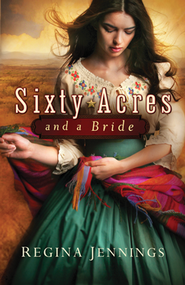 |
| Tischer Creek (turned raging torrent) |
Job 38:8-11, 25-28, 34-38
“Or who shut in the sea with doors,
When it burst forth and issued from the womb;
When I made the clouds its garment,
And thick darkness its swaddling band;
When I fixed My limit for it,
And set bars and doors;
When I said,
‘This far you may come, but no farther,
And here your proud waves must stop!’
“Who has divided a channel for the overflowing water,
Or a path for the thunderbolt,
To cause it to rain on a land where there is no one,
 |
A wilderness in which there is no man;
To satisfy the desolate waste,
And cause to spring forth the growth of tender grass?
Has the rain a father?
Or who has begotten the drops of dew?
“Can you lift up your voice to the clouds,
That an abundance of water may cover you?
Can you send out lightnings, that they may go,
And say to you, ‘Here we are!’
Who has put wisdom in the mind?
Or has given understanding to the heart?
Who can number the clouds by wisdom?
Or who can pour out the bottles of heaven,
When the dust hardens in clumps,
And the clods cling together?”
 |
| Trailhead of Congdon Park |
Duluth, Minnesota, is a city on a hill – from the base of
the hill, where the waters of Lake Superior lap (or pound) the board walk along
the shore, all the way up the 800-foot elevation gain to the flatter top that
was once a giant swamp. Its foundation
is granite, shallowly topped with red clay that offers just enough depth to
make the woods flourish. It is known
for some of the strongest blizzards in Minnesota, where the Lake creates her
own weather to suit her preferences. It
tends to be cooler and rainier in the summer than in the inland parts of the
state, but it can certainly hit 90 degrees on a sunny July day. Superior whips up some incredible storms
with ocean-sized waves all year round, and the winter storms offer some of the
best Lake surfing for extreme surfers.
Despite the quantities of water Duluth handles on a regular basis, there
is one thing one does not expect in this city: flooding.
 |
| Congdon Road |
 |
In the recent rains that covered the entire Minnesota
northland, many areas received seven to nine inches of rain in the course of
two days or less. If it were winter,
we’d be talking ten feet of snow, making the Halloween Blizzard of 1992 a minor
snowstorm. However, this was pure
water—water that had nowhere to go but straight down to the lake.
The shallow clay could not begin to handle the waves of
water that flowed in rivers down the streets—above and below—causing up to a swift
six inches to run on top of the tar, and masses of water that blasted the clay
out from underneath roads in a desperate push for the lake. Duluth’s thirty-odd creeks more resembled
rushing torrents as they raged to the lake, many exceeding their banks and
running down the streets instead.
 |
| Behind the University of MN Duluth stadium |
Up on top of the hill, the water was much slower to move,
and parking lots and roads became lakes.
One car dealership in the city discovered all their cars completely
underwater. Basements flooded, gardens
washed away—yet some places look entirely untouched.
Overall, most roads are fine (perhaps a little worse for
wear, but typical Duluth roads are hardly perfect anyway). With a few detours, one can basically get
wherever one wants. However, some
streets have gaping holes or no longer exist entirely. The zoo lost all but one of its petting zoo
critters, but the more exotic creatures were safe (though not necessarily in
their pens).
 |
| Vermillion Road, at the intersection with Hawthorne |
 |
| Vermillion Road |
Miraculously, God kept everyone safe. Even a little boy who was sucked into a
culvert and washed up six blocks away was basically uninjured. For a disaster of this magnitude, where
children and teens were playing in the streets, tubing in parking lots, and
kayaking around the east end of the University, putting themselves in danger of
being swept away to drown in the raging creeks or muddy red Superior (and in
danger of waterborne disease from the bubbling fountains of the sewer), God
made a major miracle in preserving the life of all His children.
Genesis 9:11: “Thus I establish My covenant with you: Never
again shall all flesh be cut off by the waters of the flood; never again shall
there be a flood to destroy all the earth.”
The landscape is changed, but God’s promise to all creation still
stands—we were not destroyed, but preserved.



